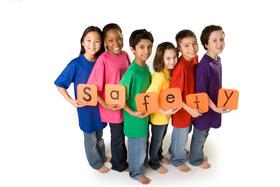We see the never-ending reporting about school shootings. They occur in places we may have visited. We may even have friends and relatives whose lives have been impacted by this violence that seems endemic in our society. But that could never happen in our children's school, or could it?
Safety is at the top of the list of concerns for parents and students. Harassment, bullying, and COVID are all still concerns, but shootings have unnerved people in every age group and walk of life. It seems as though no public place is safe anymore.
Preparing for emergencies is an ongoing process—even if a school (public or nonpublic) is at a high state of readiness for an emergency, there will still be a need for continued security, safety, and emergency management. Source: REMSTA (Readiness & Emergency Management for Schools)
Prevention
Preventing incidents from happening requires action from you and your children's school. You are partners in keeping young people safe.
The Parent's Obligation
- Understand the measures your school has put in place to prevent incidents from occurring.
- Discuss these measures regularly with your children.
- Teach your children to be situationally aware.
- Keep your lines of communication open and relaxed, so your children will tell you about anything and everything.
- Keep your phone charged with the school's emergency alert application configured to notify you anytime.
- Monitor your local weather conditions as emergencies can include severe storms, tornadoes, and flash floods.
- Teach your children how to call 911 for help.
- Teach your children how to alert others to a dangerous situation.
If all of this sounds a bit much, it isn't. It's what 21st-century kids have to deal with every day. Growing up in the 50s, I was taught not to speak to strangers, to look both ways before crossing any street, and so on. All you are doing is teaching your children to be street smart.
[The General Accounting Office] found that shootings at K-12 schools most commonly resulted from disputes or grievances. Source: General Accounting Office
The School's Obligation
- Control access to the campus and all buildings.
- Maintain and monitor camera surveillance inside and outdoors.
- Run and monitor an emergency alert app 24/7.
- Assign key personnel to liaise with the media, local, regional, state and federal security officials.
- Train these key people with effective, proven methods for communicating with the public via webinars or in-person classes.
- Always be available to answer parents' questions and address their concerns.
- Teach all your teachers, support staff, and administrators to be alert and situationally aware.
- Teach all your staff to listen, watch for warning signs, and report anything without fear of retribution.
Are students at private schools in the United States less likely to experience violence on campus than those at public schools? Out of the 134 school shootings occurring between 2000 and 2018, 122 took place at public schools, while only 8 happened at private schools.
This video discusses some of the components in an emergency notification system.
Ask questions. Get answers.
We have cared for our children since birth. The school prides itself on taking measures to keep its community safe. So, we are starting from a common point of view. Do not hesitate to ask questions about the safety measures in place and planned at your child's school. Protecting a dynamic environment such as a school campus is daunting, particularly for a small school with limited resources. Be prepared for the school to ask you to keep the details of some security matters confidential. That confidentiality will often prevent incidents. On the other hand, the school won't mind everybody knowing that it has 24/7 security personnel, limited access to the campus and buildings, and surveillance cameras everywhere. Hopefully, that knowledge will discourage anybody from breaching the school's security infrastructure.
Hire the experts.
It is prudent for any school to seek expert advice on security questions. First, the board of trustees should draw up a list of questions and concerns about security. Then have that proposal reviewed by faculty and staff and the school's parent-teacher organization executive. Once all the stakeholders have input, then put the project out for bid with at least two experienced security consultants. The cost of a consultant's fee and the implementation of the recommended security measures will be expensive and, in most cases, will not have been budgeted for in most small schools' operating budgets.
This video explains how a surveillance system and security cameras work.
Ask for help.
Schools can fund a major, urgently needed project like the one we are discussing in a couple of ways.
- Levy a surcharge. Condominium owners' associations use surcharges or special assessments to pay for new roofing or replacing windows. The downside is that surcharges are never an easy item to sell.
- Borrow the money and amortize it over the number of years that will keep the payments affordable. You can borrow from a financial institution. Or, how about asking a well-heeled alumna if she would be willing to lend the school the money needed to implement a robust security program for her beloved alma mater?
- Incorporate the security project into your school's annual fund. Alumni will give generously for specific purposes. Your security project will qualify as a worthwhile beneficiary of their generosity.
Be accountable.
It will help the school immensely when parents do the simple but important things the school asks them to do.
- Respond to school communications, whether by email or text.
- Watch for alerts while school is in session.
- Review security protocols with your children.
Schools can reassure parents and, indeed, every member of the school community by doing the following:
- Alert your community about emergencies as soon as possible. Don't let parents learn about an emergency at your school via social media or a TV chyron.
- Inform the school community and the wider public truthfully. If you don't have all the facts, don't invent a story. Instead, issue a follow-up if necessary.
- Take responsibility. We've all seen the finger-pointing that takes place after a tragedy occurs.
- Consult your school attorney and public relations specialist for guidance as necessary.
Regarding school security, Benjamin Franklin's saying rules: "An ounce of prevention is worth a pound of cure."
Questions? Contact us on Facebook. @privateschoolreview















